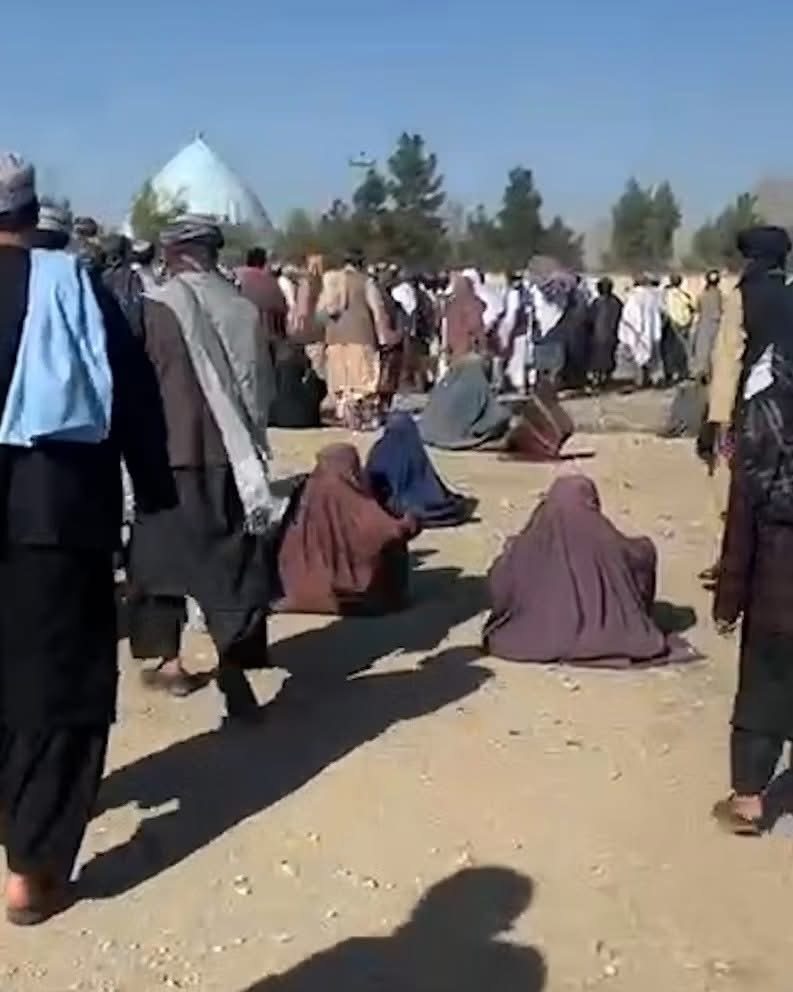
Eid in the Shadow of Poverty: Thousands of Afghan Citizens Facing Hunger and Uncertainty
While Muslims around the world prepare to celebrate Eid, thousands of Afghan citizens are spending these sacred days with empty stomachs and hearts full of sorrow due to poverty and hardship. Widespread unemployment, rising prices, and a reduction in humanitarian aid have left people in a situation where many cannot even afford basic necessities like bread.
Eid Is Just a Name for Us
Abdul Rashid, the head of an eight-member family in Kabul, says with eyes full of despair: “Eid is just a name for us. We have nothing, not even a piece of dry bread. Since the Taliban took over, I lost my job. Now, I have no money to buy Eid clothes for my children, not even for a single meal.”
The situation is similar in various provinces. Hamida, a mother of three children in Herat, says: “This year, we have no Eid. When we can’t even find bread for dinner, how can we get new clothes? I haven’t bought anything for my children, and I don’t know how to tell them that once again they will have to spend these days without new clothes and without food.”
Rising Prices and Despair Among the People
Alongside widespread unemployment, the unprecedented rise in prices has put even more pressure on poor families. The cost of basic commodities such as flour, oil, and rice has multiplied in recent months, leaving many unable to afford even the most basic necessities.
Rahmatullah, a day laborer in Mazar-i-Sharif, speaks about the hardships of life: “I used to earn 200 Afghanis a day, but now it’s been a week since I haven’t earned a single Afghani. People have become poor, and no one is hiring. My children want Eid clothes and food, but I don’t even have money for dry bread.”
Humanitarian Aid: Insufficient and Controlled by the Taliban
While international organizations are trying to send aid to the people of Afghanistan, the scale of the crisis makes the help very minimal. At the same time, there are reports suggesting that the Taliban have been controlling the distribution of aid, and in many cases, the truly needy are deprived of assistance.
A source from a charity organization in Kabul, who requested anonymity for security reasons, told IntelMedium: “We face many difficulties in distributing aid. The Taliban intervene in many cases and do not allow aid to go directly to those in need. Many families living in absolute poverty have received no help.”
Eid in the Shadow of Despair and Waiting for Change
In such conditions, many Afghan citizens face Eid with concern. For them, these days hold no joy, and there is no hope for improvement. Thousands of children who should be greeting these days with new clothes and full hands will again, this year, wait for an Eid that never arrives, with empty stomachs and old clothes.
With the ongoing economic crisis, lack of job opportunities, and obstacles to humanitarian aid, the uncertain future of the people of Afghanistan is more worrying than ever.
